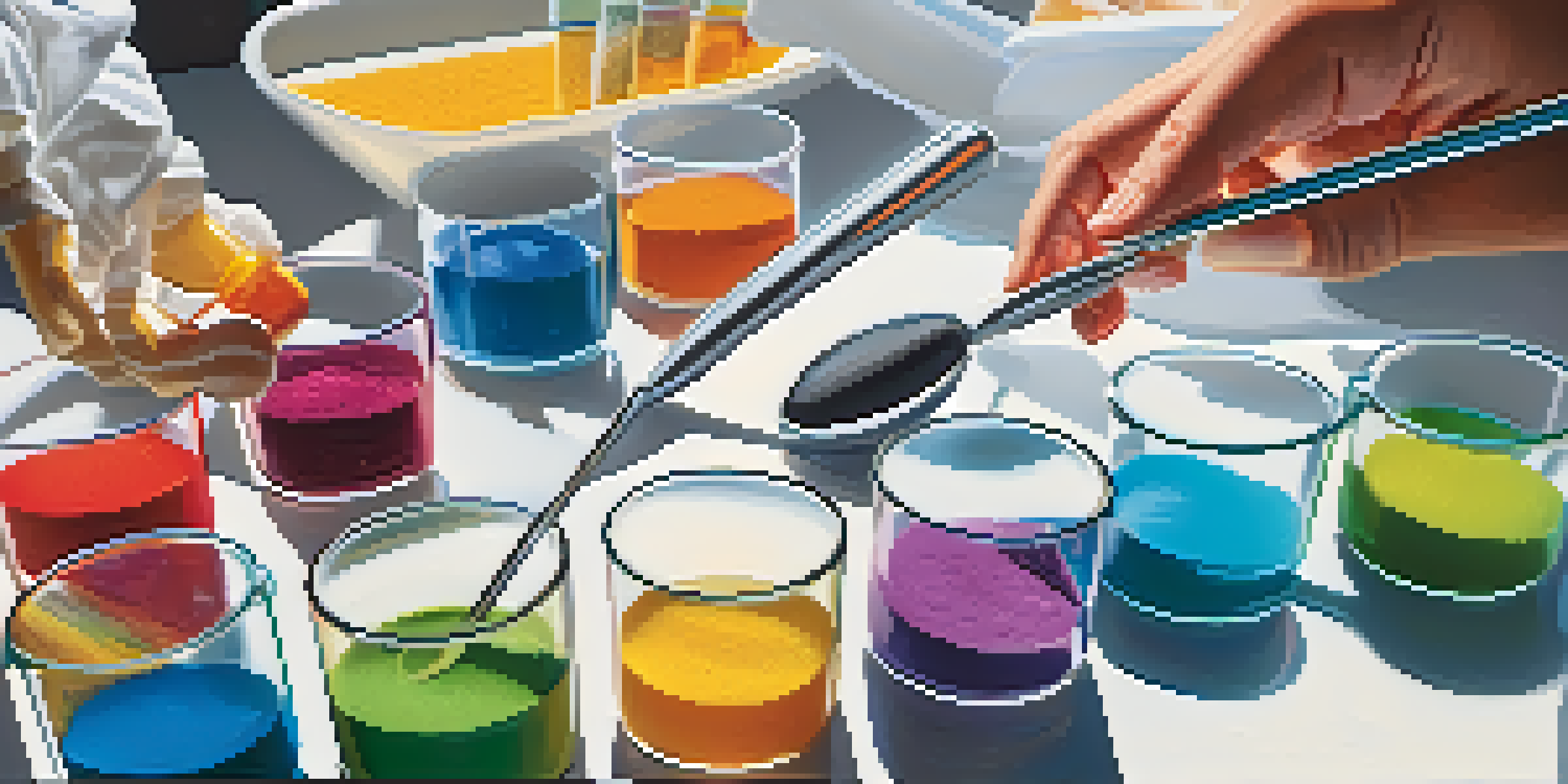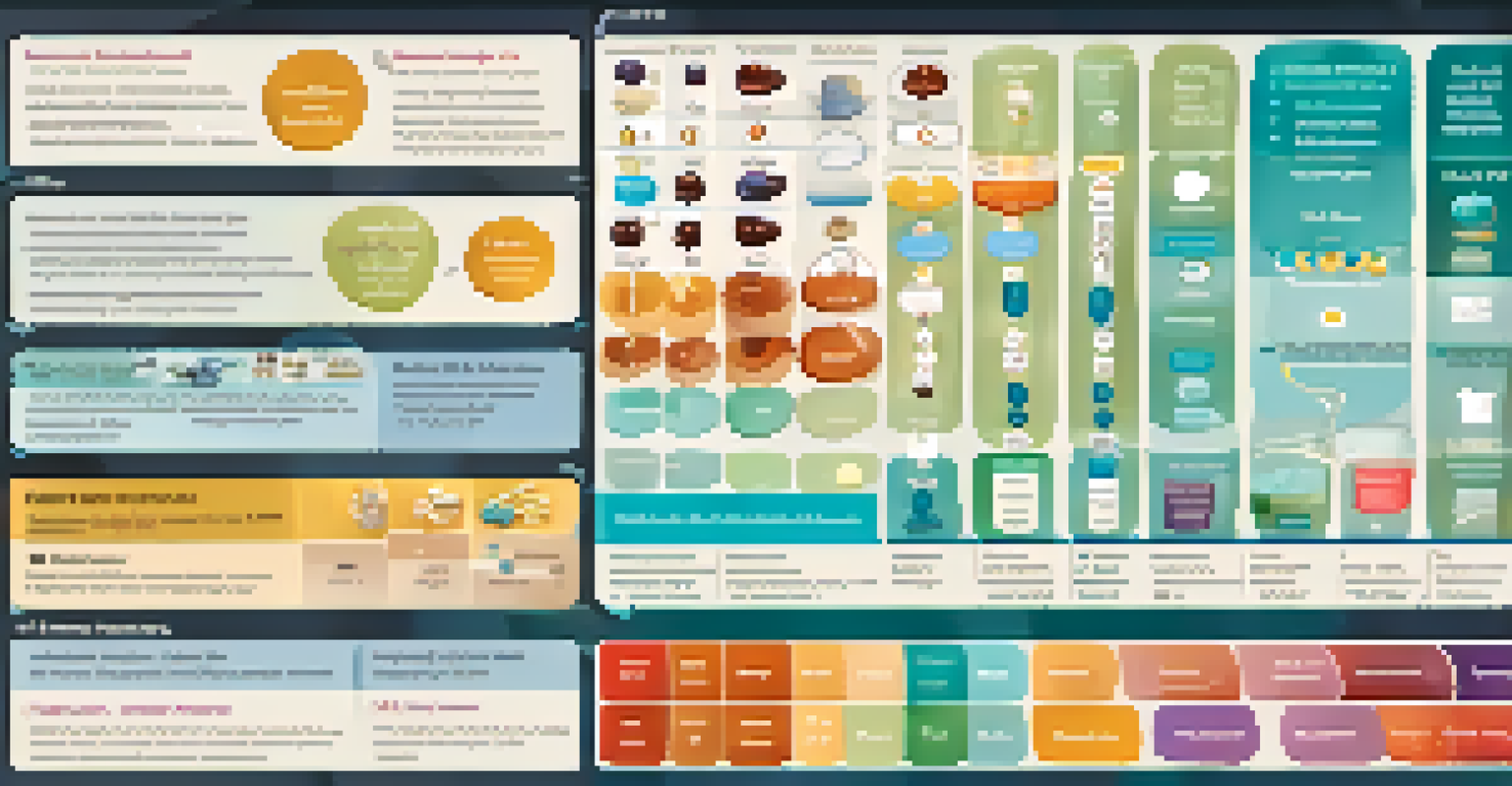The Importance of Drug Formulation in Pharmacology and Therapy

What is Drug Formulation and Why It Matters
Drug formulation is the process of combining various chemical substances to create a medication that is safe and effective. It involves deciding how a drug will be delivered, whether as a pill, liquid, or injection, and ensuring that it remains stable and effective throughout its shelf life. The right formulation can significantly impact the drug's absorption, distribution, metabolism, and excretion.
The formulation of a drug is not just a technical process; it's a crucial factor that can determine the success or failure of a treatment.
Think of drug formulation like baking a cake. Just as the right mix of ingredients and the method of baking determine the cake's texture and flavor, the formulation of a drug affects how it interacts with the body. A well-formulated drug can enhance therapeutic effects while minimizing side effects, making the patient experience much better.
In essence, drug formulation is not just a technical process; it's a crucial factor that can determine the success or failure of a treatment. Understanding its importance helps us appreciate the complexities involved in creating effective medications.
The Role of Pharmacokinetics in Drug Formulation
Pharmacokinetics refers to how the body absorbs, distributes, metabolizes, and excretes drugs. This concept is vital in drug formulation because it helps scientists predict how a drug will behave in the body once administered. A deep understanding of pharmacokinetics allows formulators to design drugs that are released at the right time and in the right amounts.

Imagine trying to water a garden with a hose. If you only let a little water out at a time, the plants might not get enough; if you let it all out at once, you could drown them. Similarly, a good drug formulation ensures that the active ingredients are released in a controlled manner to maximize their effectiveness while reducing the risk of toxicity.
Importance of Drug Formulation
Drug formulation is crucial for creating safe and effective medications that enhance therapeutic effects while minimizing side effects.
Thus, pharmacokinetics is like the roadmap guiding the formulation process, helping to tailor medications that meet patients' needs more accurately and effectively.
Pharmaceutical Excipients: The Unsung Heroes
Excipients are inactive substances used in drug formulation to aid the processing and performance of the active drug. They can improve stability, enhance absorption, and even affect the drug's taste. Although they don't have therapeutic effects themselves, excipients are crucial for the overall effectiveness of a drug formulation.
Personalized medicine is the future of healthcare, and drug formulation will be at the forefront of this revolution.
Consider excipients like the foundation of a building. While the walls and roof (the active ingredients) are what people notice, a solid foundation ensures that the structure stands strong and lasts over time. Similarly, the right excipients ensure that the active ingredients can do their job effectively.
Without proper excipients, even the most potent drug might fail to deliver its intended effects, underscoring their vital role in the formulation process.
Therapeutic Drug Monitoring and Formulation Adjustments
Therapeutic drug monitoring (TDM) is a clinical practice that measures drug levels in the bloodstream to ensure optimal dosing. This process is particularly important for drugs with narrow therapeutic windows, where the difference between effective and toxic doses is minimal. Formulation plays a key role in how well TDM can be implemented.
Think of TDM like tuning a musical instrument. Just as musicians adjust their strings to achieve the perfect sound, healthcare providers can adjust drug formulations based on TDM results to ensure that patients receive the most effective dose. This personalized approach can lead to better health outcomes.
Role of Pharmacokinetics
Pharmacokinetics helps predict how drugs behave in the body, guiding the formulation process for optimal drug release and effectiveness.
By aligning drug formulations with TDM, healthcare providers can enhance the safety and efficacy of treatments, ultimately improving patient care.
Innovations in Drug Formulation Technology
The field of drug formulation is continually evolving, with new technologies emerging that enhance how drugs are created and delivered. Innovations such as nanotechnology and 3D printing are paving the way for more precise and personalized medications. These advancements can lead to formulations that are not only more effective but also more convenient for patients.
For instance, nanotechnology can create drug particles small enough to improve absorption and reduce side effects. Imagine it as using a fine spray instead of a garden hose; the smaller droplets can reach more areas effectively. Similarly, 3D printing allows for custom drug dosages tailored to individual patient needs.
These innovations are not just exciting; they represent a significant shift in how we think about drug formulation and its potential to improve healthcare outcomes.
Impact of Patient Compliance on Drug Formulation
Patient compliance, or adherence to prescribed treatment regimens, is a critical factor in the success of any therapy. If patients find it difficult to take their medication due to its formulation—like unpleasant taste or inconvenient dosing schedules—they are less likely to stick to their treatment plan. Therefore, understanding patient needs is essential in drug formulation.
Imagine a patient trying to take a large pill every day versus a flavored liquid that is easy to swallow. The latter is much more likely to be adhered to, just like choosing a delicious dessert over a bland one. A patient-friendly formulation can lead to better compliance and, ultimately, better health outcomes.
Future of Personalized Medicine
The future of drug formulation will focus on personalized medicine, tailoring treatments to individual patient needs and genetic profiles.
Formulators must consider patient preferences and lifestyles when designing drugs, reinforcing the idea that effective medication is not just about the active ingredients but also about how those ingredients are delivered.
The Future of Drug Formulation in Healthcare
As we look toward the future, drug formulation will continue to play a pivotal role in the advancement of healthcare. With the rise of personalized medicine, where treatments are tailored to individual genetic profiles, drug formulation will need to adapt to meet these new demands. This means more innovations and a greater emphasis on understanding patient-specific needs.
Consider how GPS technology has revolutionized navigation; just as we now get directions tailored to our specific route, future drug formulations will likely be designed with individual patient profiles in mind. This could lead to more effective therapies with fewer side effects.

The ongoing research and development in drug formulation promise to enhance treatment options and improve patient outcomes, making it an exciting field to watch in the coming years.